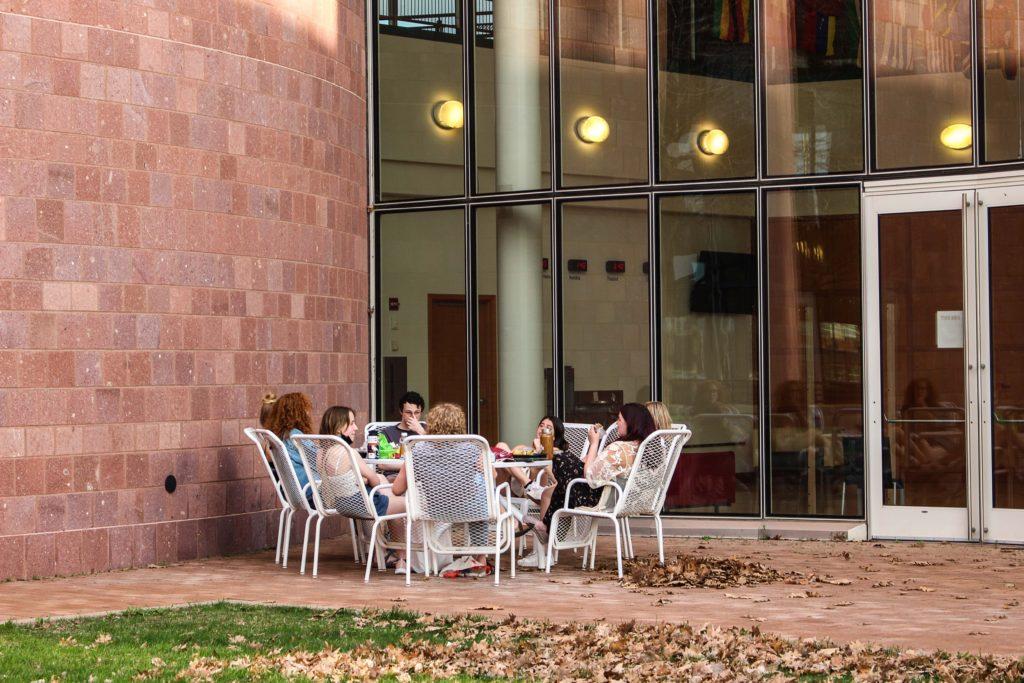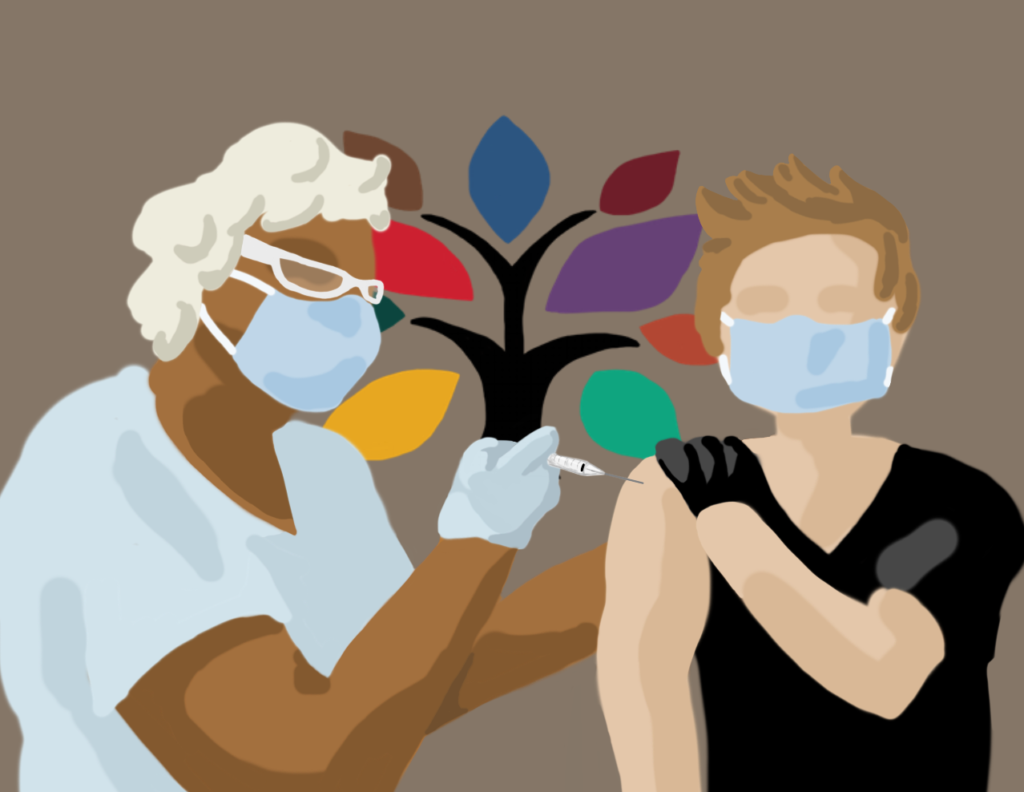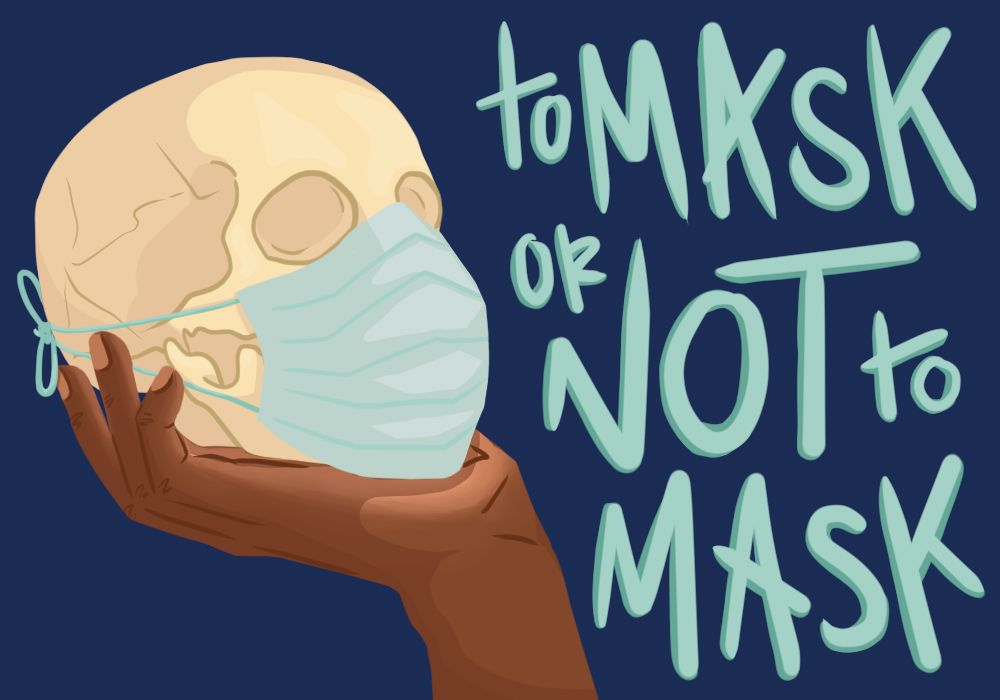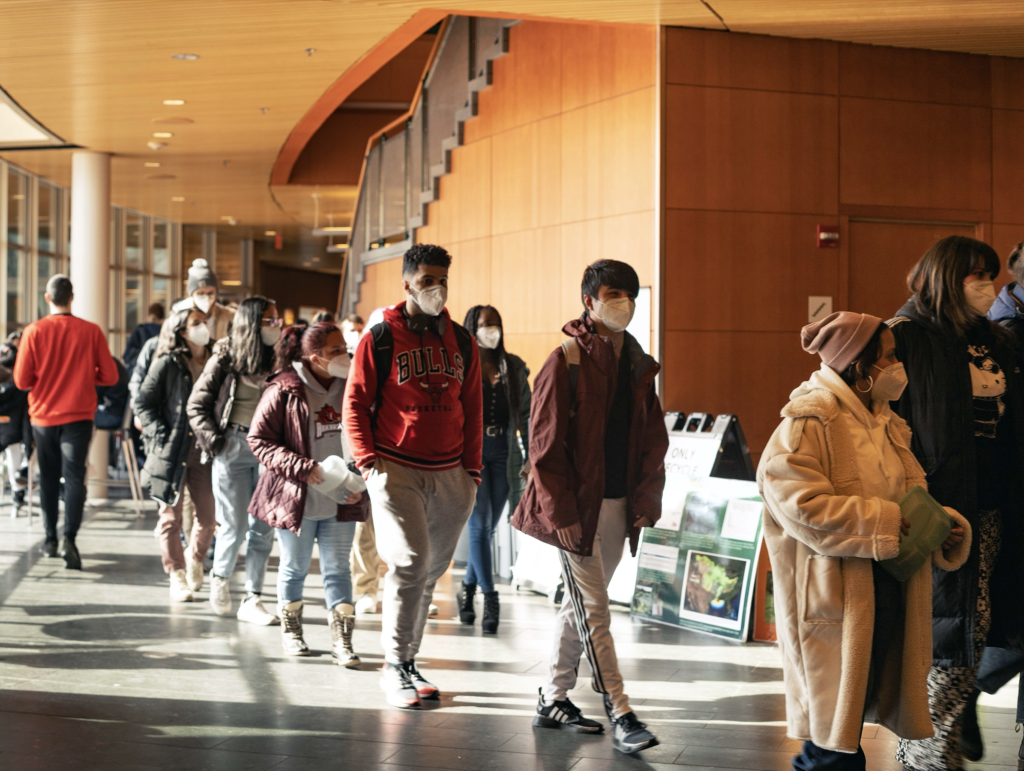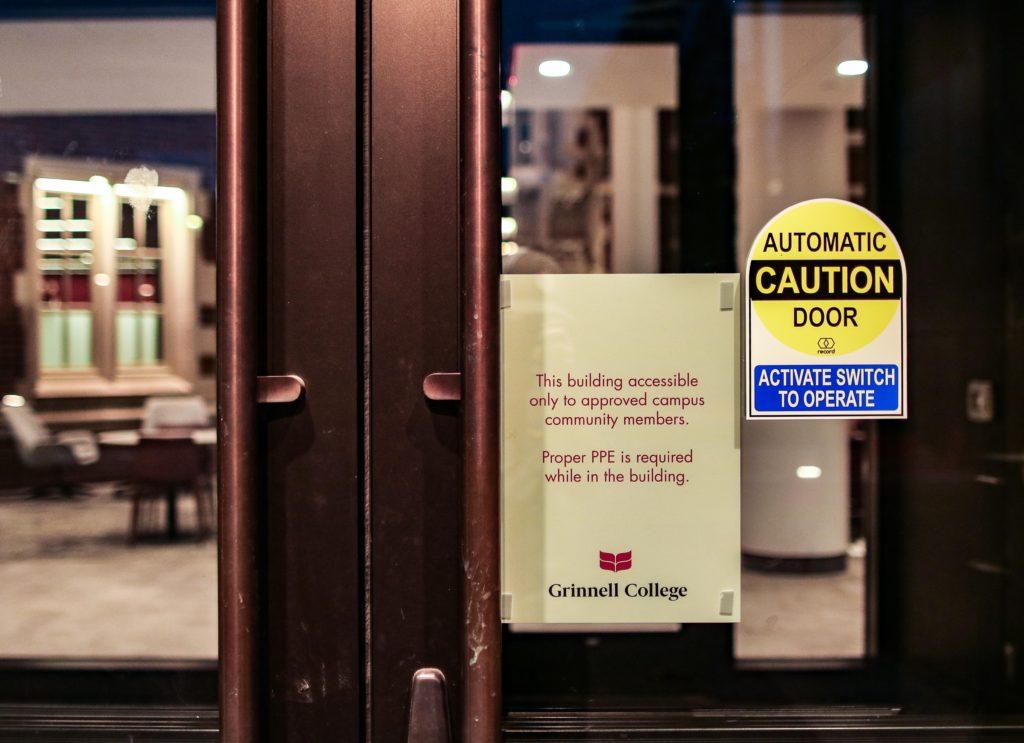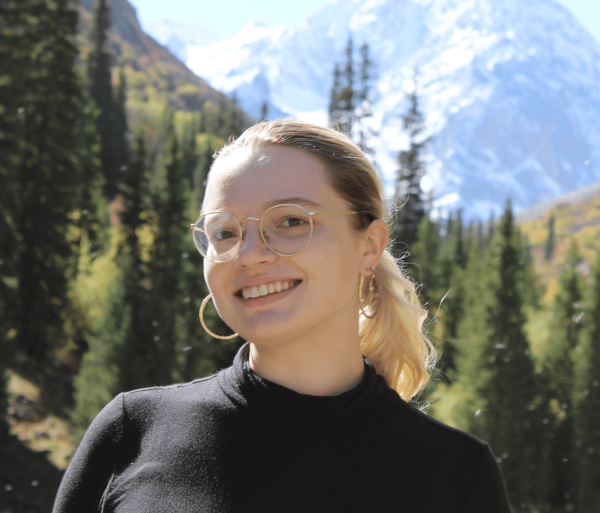Low COVID-19 positivity rates at Grinnell College have driven the administration to relax previously strict pandemic precautions, but after close to a year of the College’s highly restrictive safety policy, some students are questioning the changes – as well as what they may reveal about the College’s priorities.
The College’s decision to invite back all first-year students for Spring Term 1 and to invite second- and fourth-year students for Spring Term 2, as well as the gradual relaxation of COVID-19 precautions, has been based off consistently low positivity rates this year.
Only one student living in Grinnell has tested positive for COVID-19 since the week of March 1. Since the beginning of the Spring semester, 16 students out of 907 have tested positive for COVID-19, as well as one reported positive case from an additional site.
Due to the low positivity rates, the College switched the campus activity level from “Level Yellow” to “Level Blue”, meaning that outdoor athletic competition will be permitted, face shields and/or goggles are no longer required, except in certain contexts, and in-person classes are increasingly encouraged – shifts that make Grinnell’s current policy closer to that of similar schools.
This gradual relaxation of College policies marks a sharp change from the College’s decision to only invite 150 students back on-campus for Fall Term 1. At the time, only 10 percent of other U.S. colleges and universities had gone fully online, as Grinnell did.
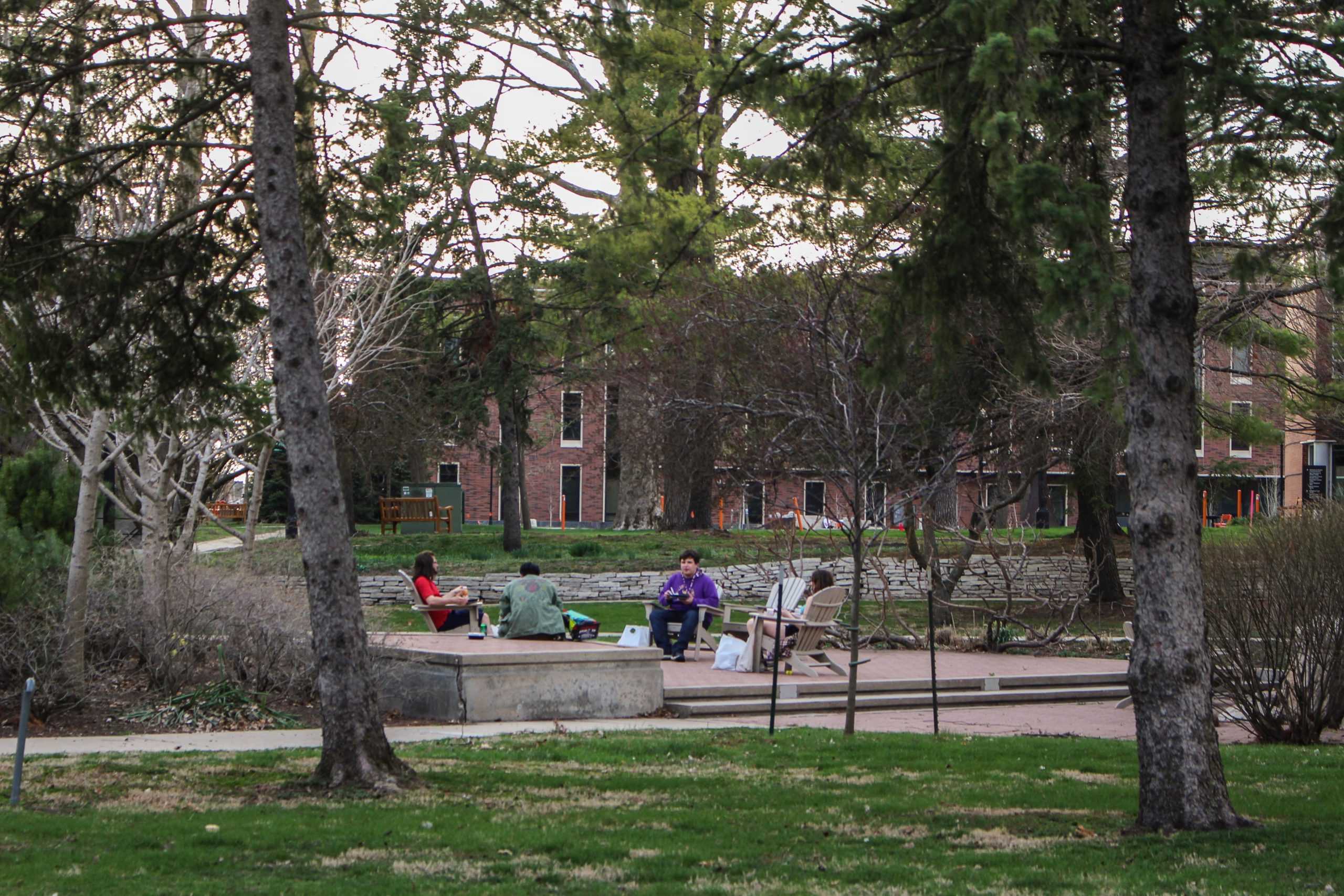
One of the more controversial decisions the College has made is the decision to invite back all varsity athletes participating in spring sports for Spring Term 2, one of the first indicators that the College administration was beginning to relax prior policies regarding COVID-19 precautions.
Celia Meagher `23.5, who petitioned for continuous residency at the College three times before being approved for Spring Term 1, said that she found this decision to be frustrating. She said that, when contrasted with her and her peers’ experiences in having been denied continuous residency throughout the 2020-21 academic year, the College’s decision to invite back all spring athletes for Spring Term 2 felt like a case of misplaced priorities.
“There’s six open rooms on our floor, and students at home who really want to be here. … That could be six third years who didn’t have to be at home,” said Brian Goodell `24, a track-and-field athlete who said that, even though he was glad to be invited back, he was skeptical of the College’s rationale when choosing to bring back spring athletes first.
Kaitlin Wilcox, associate director of analytics at the College and a member of the pandemic response team, wrote that there had been enough additional space to extend invitations for spring athletes, but not enough space to invite back all third years.
“Unfortunately, we were unable to accommodate all students who would like to have the opportunity to be on campus. Several considerations led to this decision including capacity for student support services, the safe occupancy of spaces where regular activities can be held outdoors, and where physical distance can be prioritized,” Wilcox wrote in an email to The S&B.
Wilcox declined multiple requests for comment on the College’s rationale for why spring athletes were brought back instead of a smaller contingent of third years or students requesting continuous residency due to extenuating circumstances.
Meagher said she is glad to see the College begin to open up more, but she added that she hopes that students will soon be allowed permission into academic rooms, such as music practice rooms in the Bucksbaum Center for the Arts, without using the College’s reservation system 25Live.com.
Meagher and other students have described 25Live as so unruly that it’s causing students to disregard the reservation requirements and use the rooms anyway in order to avoid the system altogether.
Ashley Pacheco `24, in continuous residence since Spring Term 1, said that she had successfully requested reservations for rooms within academic buildings, but the buildings had been locked when she has tried to go to them. Additionally, Pacheco said many of her attempts to request a room were left tentative despite requesting multiple days in advance, but that she’s never disregarded the rules like other students she knows has.
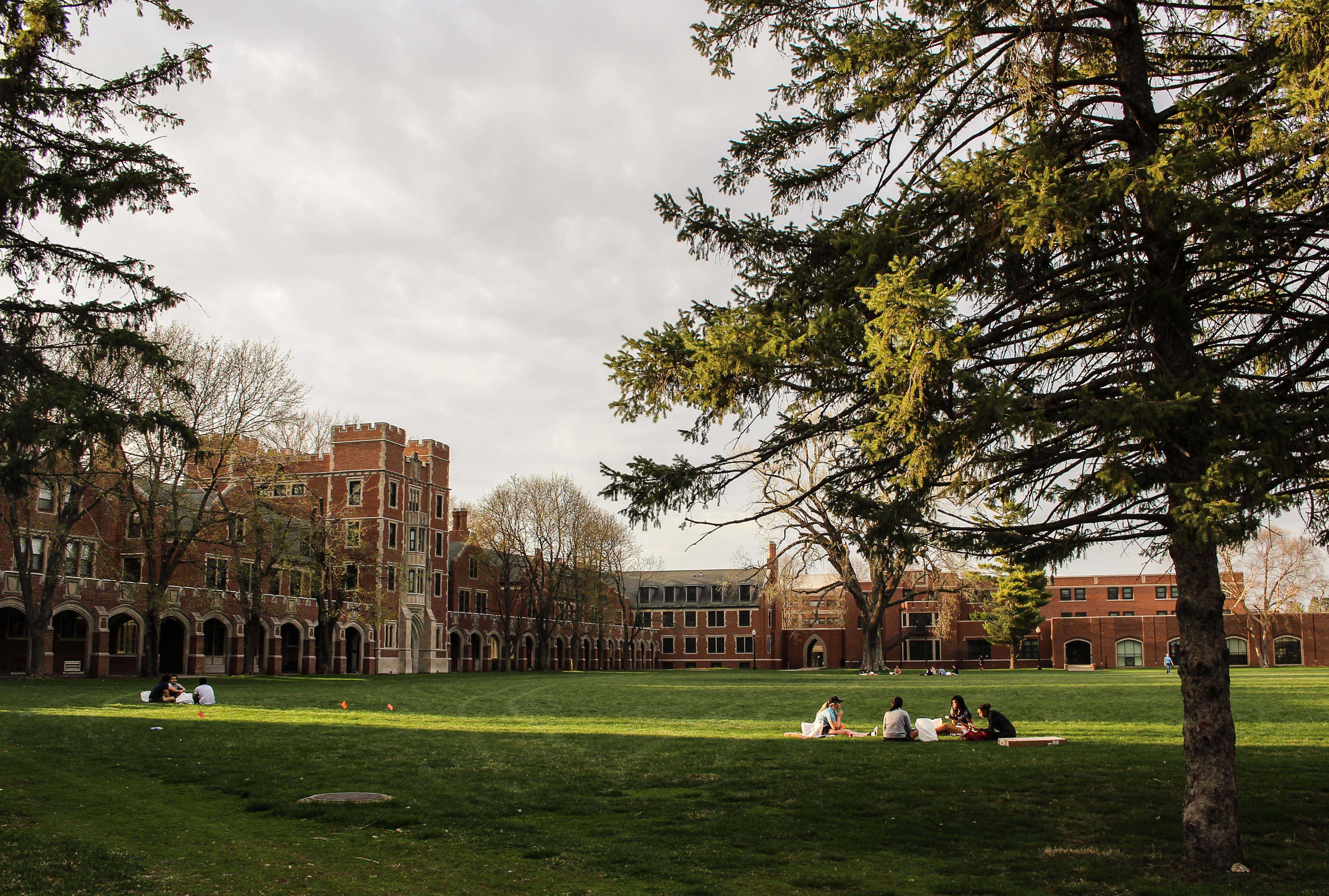
Goodell added that, though he understands why reservations are required for academic spaces, he thinks the College should move to a smoother system so that students can use academic spaces more.
Wilcox did not explain why 25Live was the College’s reservation platform or when 25Live would stop being required for academic spaces but did imply that all campus buildings would begin to open back to all students without reservation when Campus Activity Levels switch to Level Green.
Wilcox also cited the increased availability of COVID-19 vaccines as a reason for the decline in pandemic level precautions, but she added that the spread of the UK or British variant of SARS-CoV-2 (also called the B.1.1.7 variant) make predicting the future of the pandemic for Grinnell especially difficult.
“Higher education institutions are reporting higher and higher case counts due to the B.1.1.7 variant, so it is too early to look back and say that the pandemic is over. All the more reason to be vaccinated, since the vaccines available continue to be highly effective against both the existing virus and its variant,” she wrote.















































